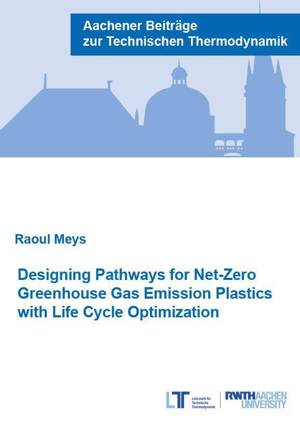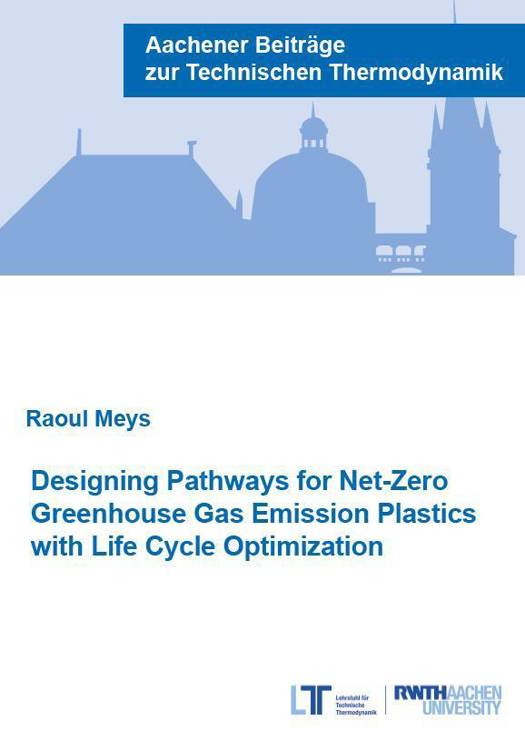
- Retrait gratuit dans votre magasin Club
- 7.000.000 titres dans notre catalogue
- Payer en toute sécurité
- Toujours un magasin près de chez vous
- Retrait gratuit dans votre magasin Club
- 7.000.0000 titres dans notre catalogue
- Payer en toute sécurité
- Toujours un magasin près de chez vous
Designing Pathways for Net-Zero Greenhouse Gas Emission Plastics with Life Cycle Optimization
Dr Raoul, Ph.D. Meys
38,95 €
+ 77 points
Description
Plastics are on the rise to conquer every area of modern human life but lead to increased pollution of nature, enormous oil consumption, and large-scale greenhouse gas emissions. Thus, to avoid climate change above 1.5 C, net-zero greenhouse gas emission plastics are needed by the second half of this century. To reduce the greenhouse gas emissions associated with plastics, three circular technologies can be used: (1) chemical or mechanical recycling, (2) carbon capture and utilization, and (3) biomass utilization. However, current environmental assessments of these circular technologies focus solely on individual or partly combined circular technologies, are limited to regional scopes, and often apply inconsistent methodologies. Thus, it is currently unclear if net-zero emission plastics can actually be achieved with the current set of circular technologies. Furthermore, shifting from the linear to a circular economy is regarded as energy-intensive and costly, hindering strong policy implementation from fostering the transition to a circular economy.To assess if net-zero emission plastics can actually be achieved, this thesis builds and uses the first global, industry-wide and systematic bottom-up model for plastics production and waste treatment, representing the global life cycle greenhouse gas emissions of 90% of global plastic production. Using that model reveals that net-zero emission plastics can be achieved by combining biomass and CO2 utilization with an effective recycling rate of 70% while saving up to to 53% of energy and 288 billion USD compared to a fossil-based benchmark applying large-scale carbon capture and storage. Achieving the full potential of energy and cost savings while achieving netzero emissions requires the supply of biomass and CO2 at low cost, while cost of oil supply must be increased. To incentivize this shift, investment barriers for all available circular technologies have to be lowered by implementing consistent emission pricing schemes, using deposit systems for plastics to increase recyclability and stopping to subsidize fossil resources. Thus, this thesis shows that the greenhouse gas emission problem of plastics can be solved with technologies and solutions already available today.
Spécifications
Parties prenantes
- Auteur(s) :
- Editeur:
Contenu
- Nombre de pages :
- 286
- Langue:
- Anglais
- Collection :
Caractéristiques
- EAN:
- 9783958864634
- Date de parution :
- 28-11-22
- Format:
- Livre broché
- Dimensions :
- 150 mm x 209 mm
- Poids :
- 380 g

Les avis
Nous publions uniquement les avis qui respectent les conditions requises. Consultez nos conditions pour les avis.






